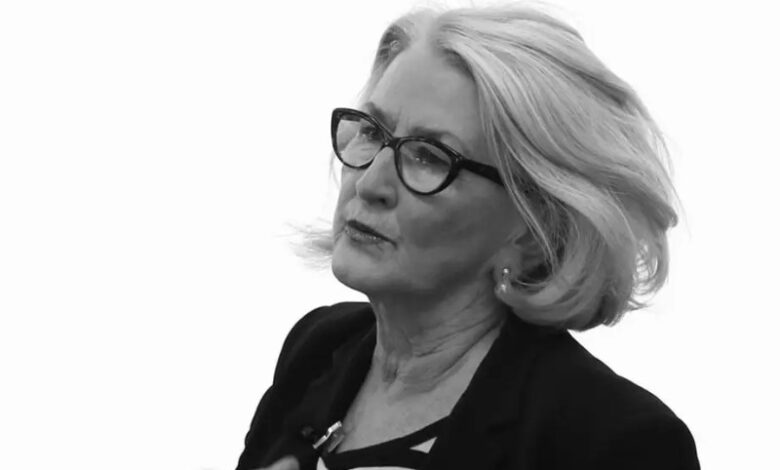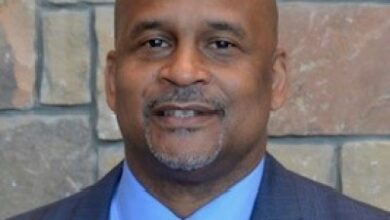Ann Pettifor: The Economist Who Foresaw the Financial Crisis and Champions Systemic Change for People and Planet

Who is Ann Pettifor?
Ann Pettifor is a renowned British economist, author, and political thinker celebrated for her foresight, activism, and dedication to economic justice. Based in London, she has built a distinguished career redefining how the world understands debt, money, and sustainability. She is the author of The Case for the Green New Deal (2019), The Production of Money (2017), and The Coming First World Debt Crisis (2006).
Her economic philosophy challenges orthodox thinking. She argues that finance must serve society and the planet, not the other way around. With a sharp focus on credit, sovereign debt, and international monetary systems, Ann Pettifor continues to advocate for policies that balance economic prosperity with environmental responsibility.
Early Life and Education of Ann Pettifor
Born in South Africa in February 1947, Ann Pettifor’s academic and moral foundations were shaped during a time of intense political and social transformation. She later moved to the United Kingdom, where she established herself as a leading voice in progressive economics.
She holds multiple honorary doctorates recognising her contributions to global financial reform and economic activism, including:
-
Doctor of Law (JD) from Newcastle University (2000) for her leadership in the Jubilee 2000 campaign.
-
Doctor of Arts in Economics from the University of Helsinki (2022).
-
Honorary Doctorate in International Political Economy from SOAS University of London (2023).
These honours reflect her lifelong dedication to reimagining global economics as a moral and sustainable system.
Ann Pettifor and the Jubilee 2000 Campaign
One of Ann Pettifor’s most influential achievements was her role as co-founder and director of Jubilee 2000, a groundbreaking international campaign that sought to cancel the unpayable debts of the world’s poorest nations.
From 1995 to 2000, she led a global movement that united activists, faith groups, politicians, and citizens around the principle of debt forgiveness. The campaign’s success was extraordinary — by the year 2000, creditors including the IMF, World Bank, and Paris Club cancelled over $100 billion of debt owed by 35 of the world’s poorest countries.
This initiative not only reshaped global economic ethics but also positioned Pettifor as a leading figure in international development and financial reform. Her work demonstrated how public mobilisation, moral conviction, and sound economics could combine to produce tangible change.
Professional Journey and Key Roles
Director of PRIME — Policy Research in Macroeconomics
Since 2010, Ann Pettifor has served as Director and Author at PRIME (Policy Research in Macroeconomics) — a London-based network of economists applying and developing Keynesian monetary theory.
PRIME challenges the failures of mainstream economics, focusing on the relationships between money, credit, production, and the ecosystem. Pettifor and her colleagues argue that economic orthodoxy has failed to address persistent inequality, financial instability, and climate breakdown.
Green New Deal Group
In 2008, Pettifor co-authored the Green New Deal, a policy blueprint produced by the New Economics Foundation and a small group of experts meeting in her London flat.
The Green New Deal proposed integrated solutions to what she called the “Triple Crunch” — the simultaneous crises of financial instability, climate change, and energy insecurity. Her contribution helped inspire a new generation of economic thinkers and policymakers seeking to unite environmental and financial reform under one holistic framework.
System Change — Substack Newsletter
Since 2020, Pettifor has written System Change, her widely read newsletter on Substack, where she analyses the international financial system and its effects on society, the economy, and the environment.
In 2026, she will publish her latest book, The Global Casino: How Wall Street Gambles with People and Planet, a continuation of her critique of financial globalisation and its planetary consequences.
Major Publications by Ann Pettifor
1. The Coming First World Debt Crisis (2006)
In this prophetic work, Pettifor warned that reckless lending and unregulated financial markets would soon trigger a global economic collapse. Her prediction came true with the 2008 global financial crisis, earning her international recognition as one of the few economists to foresee it accurately.
2. The Production of Money (2017)
This influential book demystifies how money is created and managed, arguing that public understanding of monetary systems is essential to democracy. Pettifor explains that money is not scarce — it is created by banks — and that governments can harness it for public good rather than private profit.
3. The Case for the Green New Deal (2019)
In this work, Pettifor connects economic and environmental reform, proposing an ambitious plan to finance the transition to a sustainable future. She insists that the same financial tools that bailed out banks can and must be used to bail out the planet.
4. The Global Casino (2026 — Forthcoming)
Set to be released in January 2026, her new book explores how Wall Street’s speculative capitalism destabilises both human societies and ecosystems. It promises to be a major contribution to the debate on financial reform and sustainability.
Ann Pettifor’s Economic Philosophy
Keynesian Influence and Monetary Reform
Ann Pettifor draws heavily on the ideas of John Maynard Keynes, particularly his understanding of credit, investment, and the role of government in managing demand.
She rejects austerity economics, arguing instead for public investment, active fiscal policy, and financial regulation to ensure stability and equity. Through PRIME, she promotes a framework where money creation serves productive and green investment, not speculative bubbles.
Sovereign Debt and Global Justice
Pettifor’s work on sovereign debt reform aims to empower developing countries trapped in cycles of repayment and dependency. She advocates for fairer lending systems, transparent financial institutions, and international cooperation to prevent exploitation through debt.
Economy and Ecosystem Integration
Her recent writings focus on the intersection of economics and the environment, highlighting how monetary systems underpin the exploitation of natural resources. Pettifor’s “System Change” approach insists that climate policy cannot succeed without financial reform — the two are fundamentally intertwined.
Recognition and Influence
Ann Pettifor is a Fellow of the Academy of Social Sciences and a respected voice across academic, activist, and policy circles. Her influence extends through universities, think tanks, and international organisations.
She has advised faith leaders, policymakers, and advocacy groups — including her work with Operation Noah, a Christian-based initiative advocating sustainable lifestyles and climate action between 2006 and 2010.
Her media presence and lectures worldwide have inspired both economists and environmentalists to rethink the moral foundations of money and finance.
Ann Pettifor’s Vision for the Future
At the heart of Ann Pettifor’s vision is a simple but radical idea: the economy should serve humanity and the planet, not financial markets. She believes that money is a social good — one that must be governed democratically, not left to speculative forces.
Through her continued writing and advocacy, she pushes for a post-neoliberal world — one built on fairness, sustainability, and shared prosperity. Her forthcoming Global Casino will likely reinforce this vision, exposing how unchecked financial systems threaten both economic stability and ecological survival.
Legacy of Ann Pettifor
Ann Pettifor’s legacy is one of moral courage, intellectual foresight, and systemic reform. From predicting the 2008 financial crash to shaping the Green New Deal, her contributions have left an enduring mark on economic thought and public policy.
She represents a rare blend of economist and activist — an individual who not only analyses global finance but also mobilises people to change it.
In a time of economic inequality and climate crisis, Ann Pettifor stands as a beacon of reason, hope, and transformative possibility. Her work reminds us that the financial system is not a force of nature — it is a human creation, and it can be remade for the common good.



